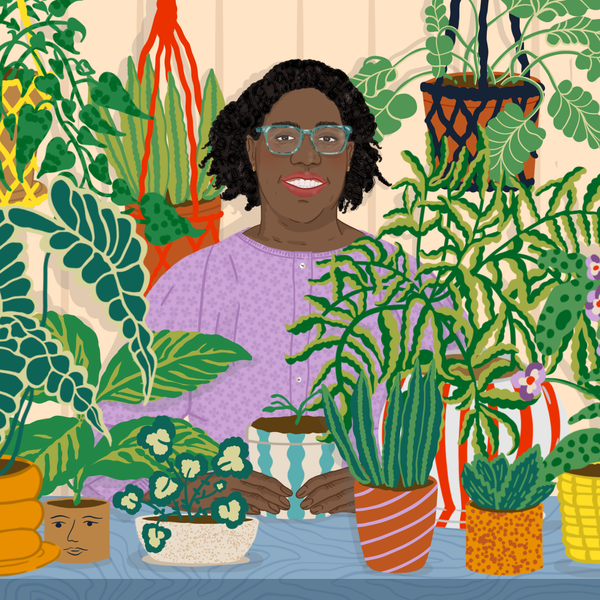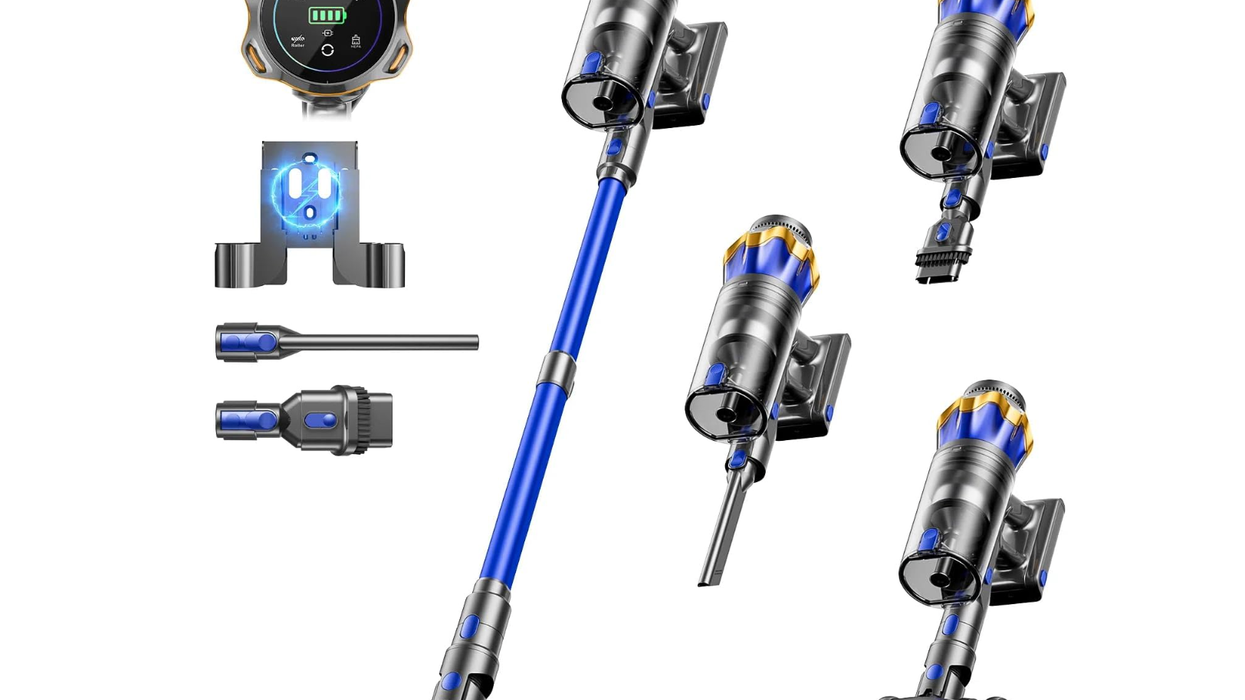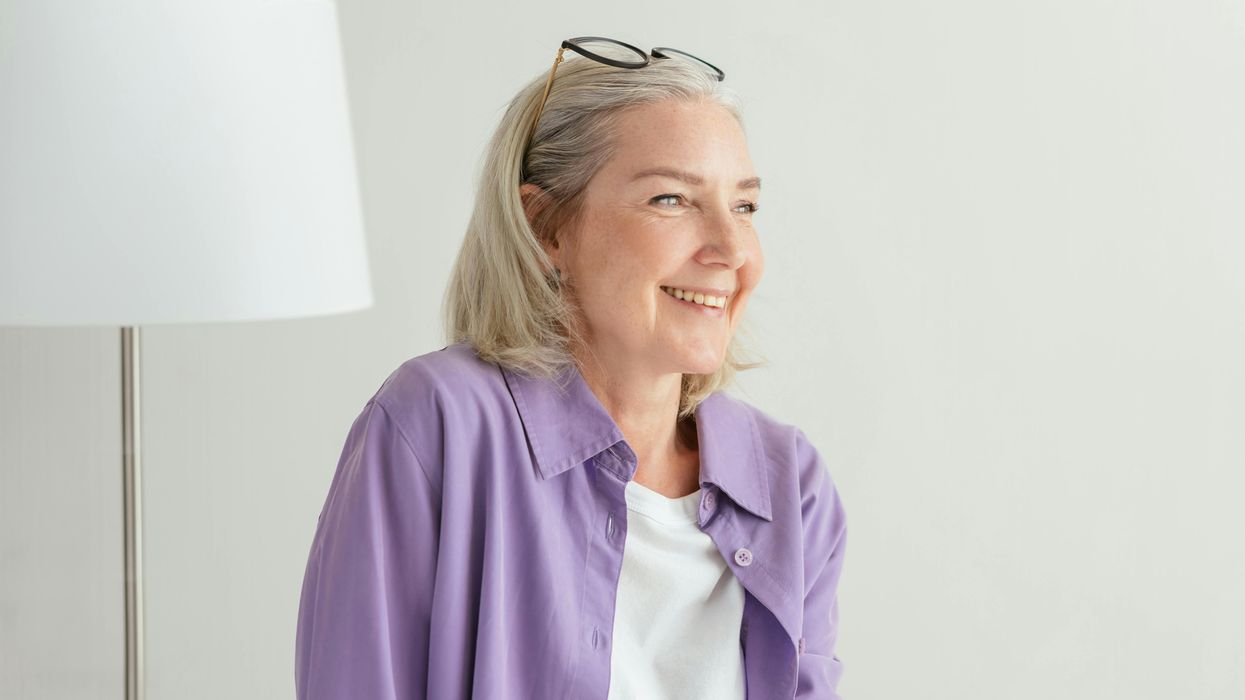Meet a handful of women taking on the male-dominated world of farming and agriculture.
A Woman's Place: Females in Farming

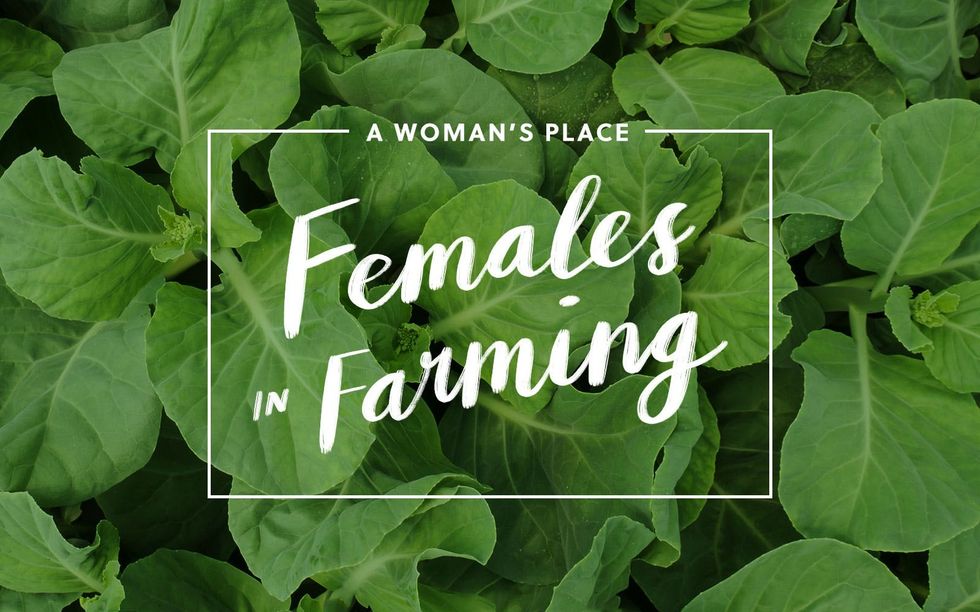
“A Woman’s Place” is a new series spotlighting the women making bold moves in male-dominated industries.
“‘You don’t look like a farmer,’” Katie Morich recalls being told recently by a 10-year-old girl who she met while on vacation. When Morich asked the girl what she thought farmers look like, she replied: “‘A boy.’”
Morich is a 5’ 2”, 25-year-old woman. Showing us around Bowery Farming, the indoor farm in New Jersey where she works, she tells us, “She doesn't see me as a farmer. But it felt really powerful for me to be like, ‘Hey, I do this. You could do it too.’’’
Morich and her 27-year-old colleague Tara O’Heir are two of 35 full-time employees at Bowery Farming (14 of whom are women), a tech-savvy operation that uses a heavily-controlled environment to produce fresh greens all year-round. Tucked away inside a nondescript industrial park, the space doesn’t look like your average farm, but then again O’Heir and Morich aren’t your average farmers. They aren’t spending their days under the blazing sun, dressed in overalls and operating tractors. Instead, you’ll find them wearing sterilized uniforms, using electronic tablets under LEDs.
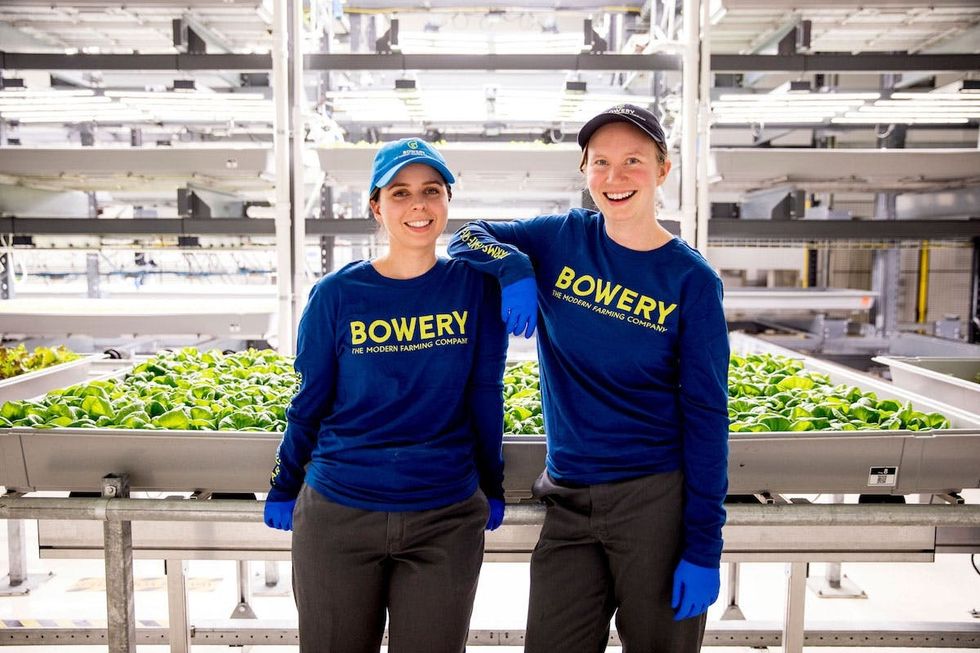
O’Heir, an agricultural scientist, is focused on boosting production and maintaining crop quality, while Morich, a modern farmer, is responsible for day-to-day farm operations.
Neither of the women grew up with dreams of becoming a farmer. Morich went to school for psychology. After graduation, she was on the hunt for a job she was passionate about and “fell in love in love with the bigger picture of how [farmers] can help change the world and how [they] can change the food issues that we’ve been having.”
O’Heir has a similar story. She was studying to become a doctor until she stumbled upon a hydroponic greenhouse course in college and “completely fell in love.”
Even though they both strayed from their original paths, neither seems to have any regrets about diving into a notoriously difficult industry.
“I really do love being a woman farmer. I think it’s super cool and that’s why I got into agriculture,” Morich says proudly. “I think we’ve just been told for so long that we couldn’t do it that it’s ingrained in our heads. We think, ‘I can’t do this job because it’s labor-intensive,’ but that’s not the case.”
O’Heir and Morich make a point to say how empowered and constantly encouraged they are by their all-male bosses to experiment with new farming practices, but their situation isn’t exactly reflective of the state of the agriculture industry overall.
OLD MACDONALD'S INDUSTRY

For decades, American farmers have had the reputation of being old white dudes – and in this instance, the “Old MacDonald” stereotype actually isn’t far off from the reality.
According to the 2012 Census of Agriculture (the USDA’s most recent report on the industry), more than 92 percent of the country’s 2.1 million farm owners are non-Hispanic whites with an average age of 58 years old.
Women own a dismal 13 percent of the farms that make up the agriculture industry, though the exact number of women working within those farms is unknown. What we do know is that the few women-owned farms tend to be close to 50 percent smaller than male-run operations. And with lower acreage comes a smaller profit. Only five percent of farms run by women break $100,000 in sales. In fact, 91 percent of their farms make less than $50,000 in annually
Most of the women we spoke to for this story weren’t even aware of the notable size difference between male and female-run farms. Some figured that gender-biased financial restrictions like who does and doesn’t get approved for loans play a role in the disparity, while others suspect it may point to a fundamental difference in the way women prefer to farm.
DOING THINGS DIFFERENTLY
Is there a difference in the way men and women farm? Documentarian Audra Mulkern thinks so.
For the past five years, Mulkern has been traveling around the country, interviewing and photographing female farmers as part of her Female Farmer Project. Through her work, the Washingtonian has become a narrative proxy for women in agriculture, pushing for more representation in the industry and collecting an oral history along the way.
Mulkern describes women farmers she’s met as “incredible problem solvers” who “tend to cooperate with nature as opposed to figuring out how to grow something where it isn’t meant to be growing.” She recalls one woman farmer from her home state of Washington who purchased farmland with the intention of raising sheep for wool and meat. But as she started up her operation, she went through hell trying to maintain the meadow-like environment sheep need in a place that’s naturally more of a forest.
Mulkern says, “She realized at some point that she was fighting nature to have sheep where they don’t belong.” Rather than attempting to beat Mother Nature into submission, the farmer decided to shift her initial plan to accommodate what would work best with the land in question. She sold the sheep and instead invested in pigs, which thrive in the forest.
“It’s an interesting relationship that women have with nature,” Mulkern tells us, which she says informs women’s approach to agriculture.
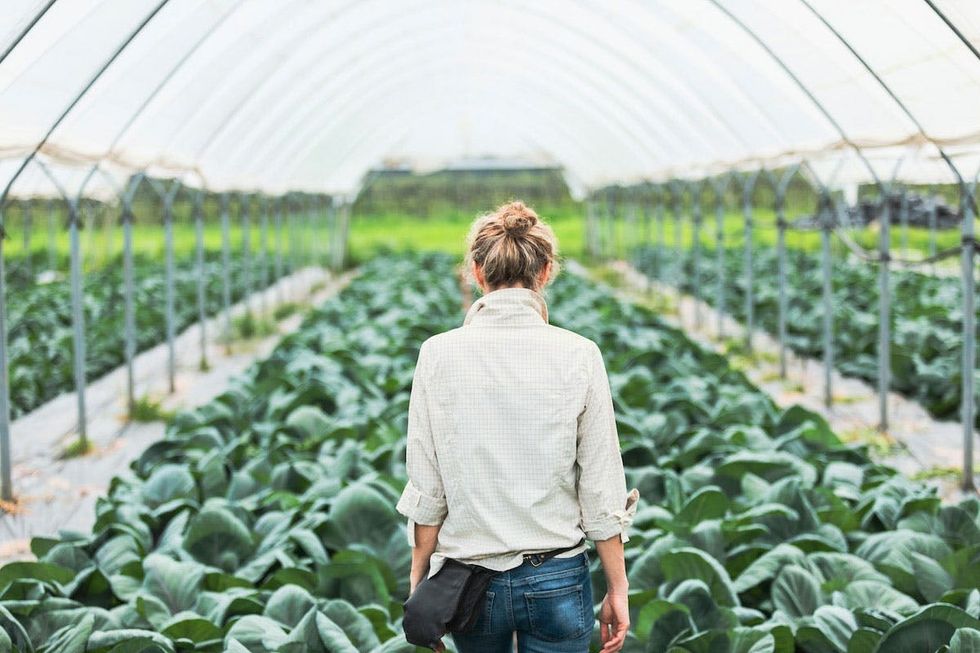
Despite women’s intuitive relationship with nature, Mulkern believes there are a handful of reasons why women remain underrepresented in farming. Echoing Katie Morich’s interaction with the 10-year-old, Mulkern says, “When there are no pictures or stories of women who have done [farming], you don’t know that you can. I really felt that if I could flood Google Images with photos of female farmers, then women would believe that they could farm.”
Mulkern started The Female Farmer Project after a trip to the farmers' market, where she noticed there was a woman behind almost every stall. “‘Why did I have a preconceived idea that men are farmers?’” she remembers asking herself. After that, she left her job in tech, had a friend teach her how to use a camera, and got to work.
As the project evolved, her mission grew beyond just establishing visibility. “[Now] the whole goal is to get stakeholders and people in policy to pay attention and see what was going on, because for the most part, women have been left out of consideration when policy is written.”
“When there are no pictures or stories of women who have done [farming], you don’t know that you can."
Interestingly, for a lot of the women she meets, farming is an encore career. “These are often highly educated professional women who are now farming because they have a desire to feed their community,” she explains — a trajectory that almost exactly describes the journeys of Bowery’s Morich and O’Heir.
“These are first-generation farmers. They’re not inheriting these huge pieces of land and farm operations,” she adds. “They’re starting from scratch.” And so – perhaps for financial reasons – they typically tend to lease land as opposed to buying it outright.
“For a long time there were no loans available for that kind of [first-generation] farming,” Mulkern says.“They’re leasing the land and they need a loan to get processing facilities or an affordable refrigerator – something they can take if they end a lease and move to a new piece of land.”
Slowly but surely, Mulkern is noticing incremental, progressive shifts in the industry. Loan policies are beginning to reflect this kind of practice. She also notes that the upcoming 2017 USDA Census of Agriculture (not yet published) even changed some of the language to be more inclusive toward the ways women are farming.
Previous censuses only recorded a farm’s primary operator, which was (and is) typically a man. This time around, the questionnaires have opened up to include as many as six different primary operators. “That’s how women are farming today. They’re creating partnerships,” Mulkern says.
A SEAT AT THE (COMMUNAL) TABLE
Whether because of systemic setbacks or fundamental differences, the smaller size of female-owned farms often results in a close connection between farmers and their local communities, since most end up interacting directly with their clients. Their produce is likely to be found in the neighborhood co-op, in nearby restaurants, or at the local farmers' market.
That’s exactly where you’ll find Jenny Hauf on weekends. The eastern Massachusetts-based farmer runs Muddy River Herbals, a one-acre patch of land where botanicals are transformed into tinctures, oils, and dried blends.
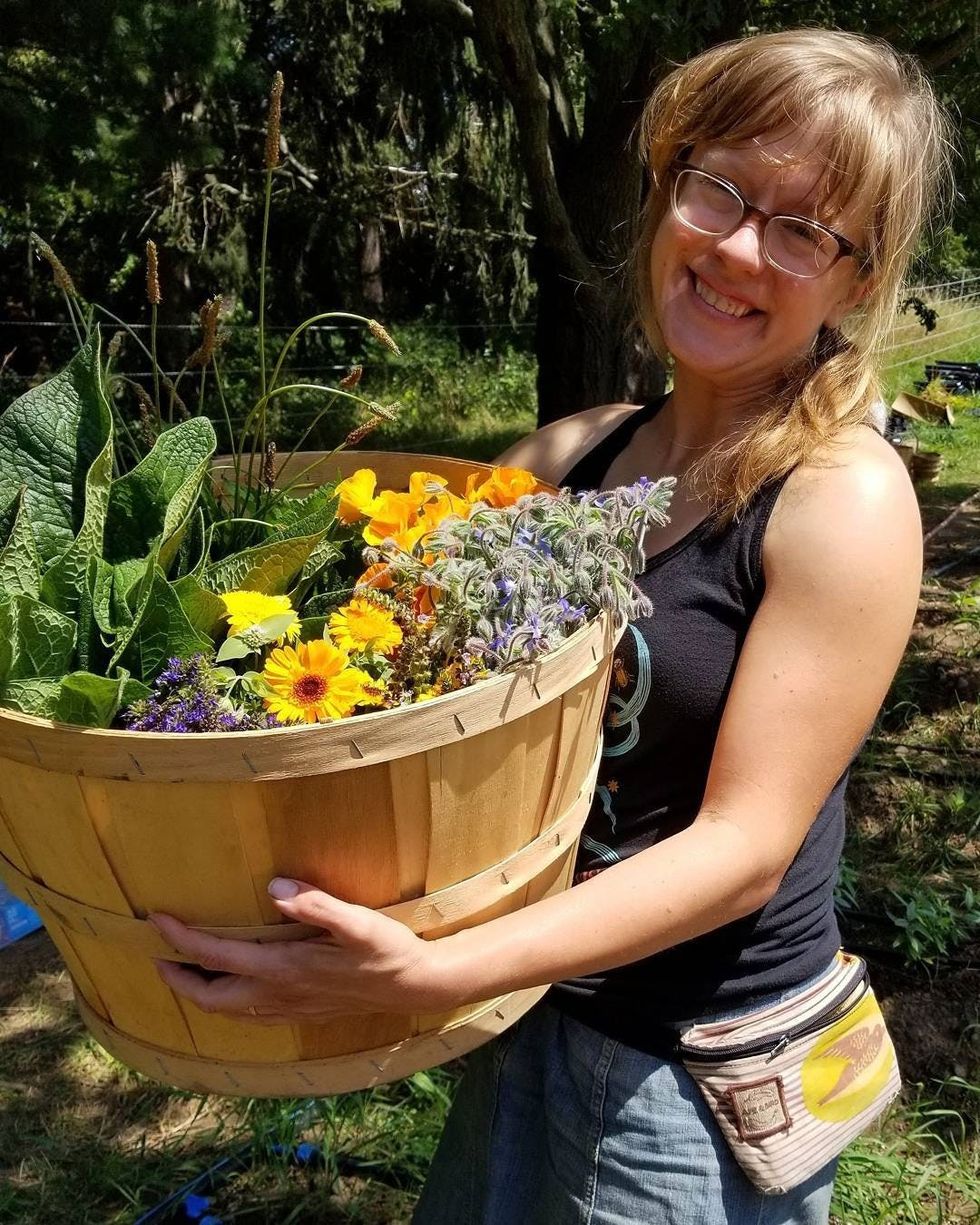
For Hauf, building community and a connection to her land are both vital to the way she farms and a leading reason why she got into farming in the first place.
“I strongly believe that a large part of the reason women make such great farmers is because we tend to be such good nurturers,” she says. “I prefer [to farm small] because of how deeply intimate it is. It is so fulfilling to know individual plants and to get my hands deep in soil on a daily basis.”
Hauf’s business partner is also her life partner, so her farming community is quite literally her family. But even the workers she’s not married to are considered more than colleagues.
“On our farm, it really does feel like a little bit of a family,” she says. “I really craved having relationships with people that loved our herbs. I wanted them to be a part of it in a really natural way.”
At Bowery’s farm, when we ask Tara O'Heir what she values most about the profession, she echoed a similar sentiment. “I like thinking about how [our greens] are going to end up on someone’s table and how someone’s going to love it. We’re touching the community. We’re bettering someone or a family’s life. I find that really powerful.”
THE FUTURE OF FARMING
Two hundred miles from Hauf’s slice of botanical paradise, Liz Dowd tends to crops at Brooklyn Grange Farm on the roof of an office building in New York’s Long Island City. With her 10-month-old, Jude, strapped to her chest, Dowd gives us a tour of a balmy greenhouse where most of the farm’s plants are enjoying a cushy start to life.
In a few weeks, all that’s in here will be planted outdoors. It’s her favorite and most challenging time of year. “Tomatoes are the divas,” she says with a smile. Then she points to the budding tray of greens and tells me those are the most likely to thrive when they’re moved into an open-air environment.
Dowd is the farm manager at Brooklyn Grange Farm, New York City’s largest, soil-based rooftop farm. From the moment we meet, it’s clear that Dowd is at home on this one-acre oasis above Long Island City. But as comfortable as she is farming in part of the country’s largest city, her occupation is still a bit of a foreign concept to the rest of New York.
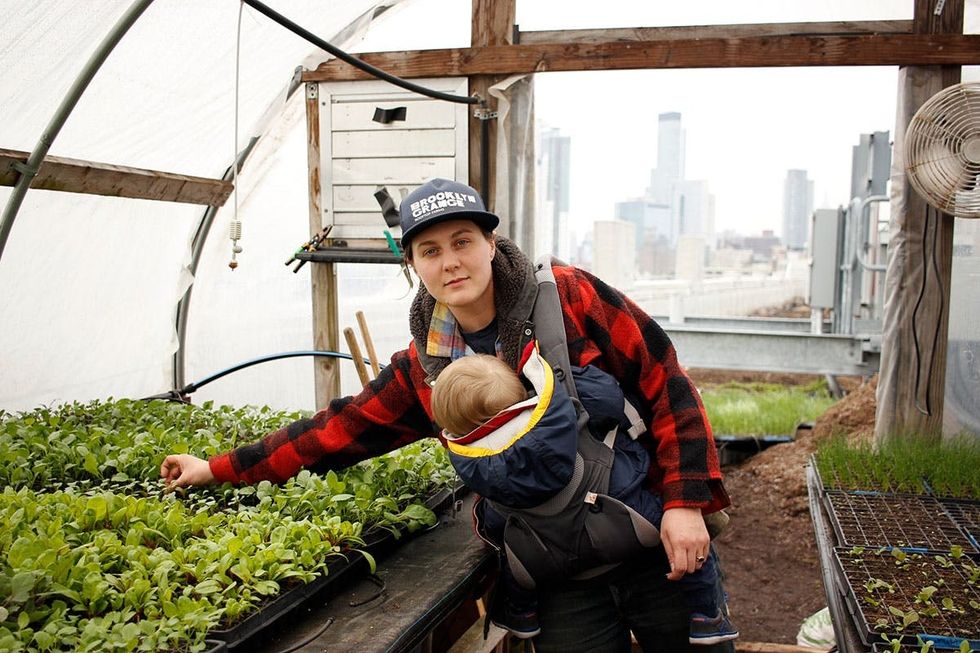
“[People’s] initial reaction is that [they’re] confused [by my job]. People are perplexed about what it means. They think I work in a community garden or plant flowers. And then I think it’s a lot of excitement. People have a lot of questions and want to see pictures and their minds are a little blown that we’re up on a roof.”
Maybe they’re confused, but surely in a progressive city like New York they’re supportive of her profession, right? “You’d think that,” she says. “I’m always surprised at how that’s not the case. There are a lot of preconceptions and microaggressions.”
She explains that before she began managing the farm, a man held her position. Dowd says that nowadays, she’ll walk through the office building of which the farm sits atop, and some of the neighbors will stop to tell her that – while she’s doing a great job – her predecessor cultivated more produce.
“They’re not quite realizing what they’re saying,” Dowd says. “But the undertone is ‘You’re doing a great job, but that guy, he was growing tons more.’ When, statistically, the yields of this farm have increased over 25 percent [since he left].”
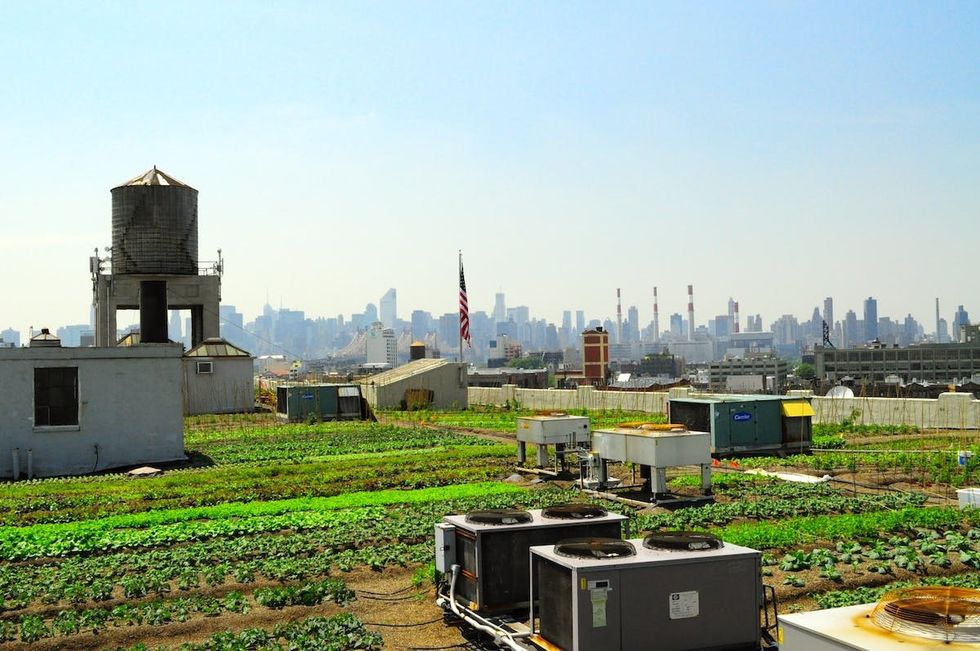
The general public may still be slow on the draw, but Dowd only sings praises about her colleagues at the farm. “I have not forgotten that it’s a very unique experience to be working with another male who will give me the power drill and asks me to do the carpentry job or load the heavier things. We as women are really treated as equals here.”
Sitting with Dowd in her rustic, wooden office (okay, it’s really more of a shack with wifi), looking out over the Manhattan skyline, it feels like we’re witnessing the future of farming. Dowd’s baby is nestled in her arms, sipping on a bottle, while we talk about how to get more women involved in the industry.
Close the wage gap. Adapt old policies to modern practices. Eliminate tired gender stigmas. But then Dowd looks down at her son and offers up the purest suggestion there is: “Really, we just need to raise feminist men.”
Written by: Cortney Clift


